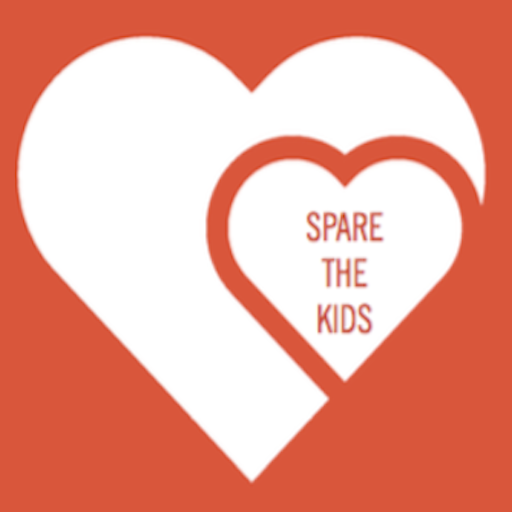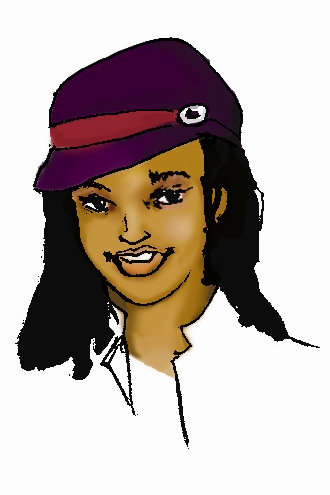By Dr. Stacey Patton
Creator of Spare The Kids
All the pushing, shoving and fighting for a spot on crowded New York City subways makes riding those iron horses a rough and tumble experience. One need only peruse youtube videos of savage subway beatdowns to get a view of the base and brutal level of humanity I’m talking about. And between the hours of 3 and 4 in the afternoon, teenagers are oftentimes the main culprits stirring up fights.
Consider the following scene:
Just before the end of the school year I was riding the downtown 3 train when two black teenage girls sitting across from each other started cussing each other out because one girl didn’t like the way the other girl looked at her.
“What the bleep you lookin’ at? You ugly bleep!” girl number one, who had a tattooed trail of cat paws climbing up her cleavage, said to the other.
“Bleep, I’ll bleep you the bleep up! You dumbass bleep!” the other girl answered with a barrage of threats as her two friends sitting next to her chuckled.
Girl number one stood up and started clap, clap, clapping the back of one hand against the palm of the other hand between each word she yelled. “What you wanna do, SON? You keep sittin’ there rollin’ your bleeping eyes at a n–ga. What you wanna do, SON? We can get it poppin’ up in this mutha bleeper.”
I pretended to continue reading an article on my Kindle as I shook my head at girl number one’s use of SON, the n-word, and the syncopated echoes of her hands. I was slightly tempted to test out my newly upgraded I-Phone video camera if fists and weaves started to fly. But I got off at the next stop while the teens were still yelling and threatening each other.
I don’t know if they fought but that scene took me back to my childhood years when eye-rolling was something I had to be very conscious of in my adoptive parent’s home. If I dared to cut my eyes too quickly away from my adoptive mother she’d threaten to slap them out of my head or to knock my head completely off my shoulders.
To avoid getting hit, I had to learn how to carefully break eye contact with her because I knew that she perceived continued eye contact as disrespectful. Since head up, eyes straight ahead and facing her was perceived as me issuing a sensory challenge that warranted a whipping, I had to know when to avert my eyes. My downcast eyes signaled that I accepted my subordinate status as a child.
I can’t speak for other cultures, but eye-rolling in general provokes strong reactions among black people. It is considered a non-contact slap in the face or a body language diss that people respond strongly to. And like sucking one’s teeth and talking back, black parents get downright irate when their children roll their eyes at them. The historian in me can’t help but to argue that this cultural conditioning evolved out of the history of slavery and Jim Crow.
In his book Sensory Worlds in Early America, Peter Charles Hoffer argues that slaves who looked their masters in the eye issued a “sensate demand” to be treated as equals. Slaves rarely made eye contact with their masters when questioned, when they were told to do something, or when they were whipped. Hoffer writes: “there were other gestures with the eyes – averting them to the side, closing them, rolling them, squinting – which in African customs were a form of disagreement or disapproval but which were read by white masters as evidence of slave insolence.”
While looking whites in the eye could get a slave beaten to a pulp, doing so during the Jim Crow period carried an even heavier price. Indeed, mobs were known to lynch blacks for such “insolent” behaviors and defiance of racial etiquette codes.
For blacks, teaching one’s children to be careful of how their eyes move in their heads was once a life-saving parenting strategy during a time of racial turmoil. But we have forgotten how one of our African customs of self-contained bodily communication was denied to us under slavery and Jim Crow and has evolved into a sign of disrespect and passive aggressive behavior in our modern homes, communities and transportation hubs. And since black parents make eye-rolling such a major offense, it becomes an emotional charge for their children who react negatively to it in public spaces. Even though they are not always conscious of how they are culturally programmed at home, they are ready to go to blows over the perceived power of a look.
What do you think about eye-rolling? Do you think a child’s rolling of the eyes is a major offense? Do you think this form of body language is universally perceived as a sign of disrespect?



I tend to let eye-rolling pass. At the same time, I will do my best to let my two (Not So Little) Dears know that they need to be careful about using that “look” with other young people, especially those they don’t know. And of course to NOT do it with adults, particularly those in positions of authority.
In my case? Compared with “smart-mouthing,” or the use of “Whatever” — which REALLY SETS ME OFF — I usually ignore them when/if they roll their eyes at me. Depends alot on the context but also, as parents say, You Have to Pick Your Battles.
Great subject, Dr. Stacey Patton! 😉
I think it is disrespectful for kids to roll their eyes. But at the same time I don’t think they should be hit for it. After all they do have the right to have control over their bodies as long as they don’t come out of their personal space with it. Just my two cents.